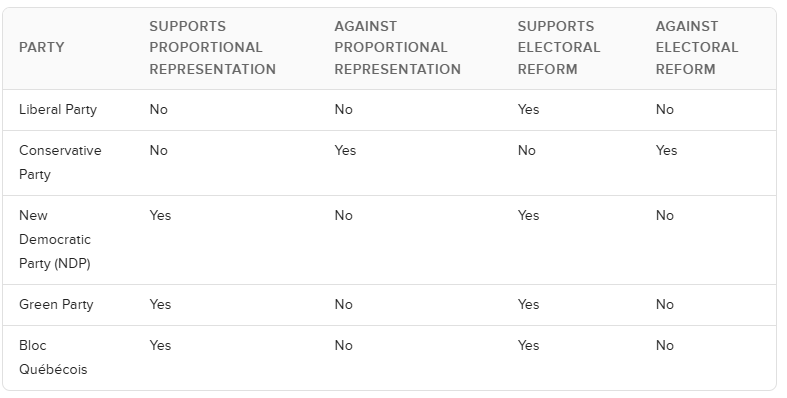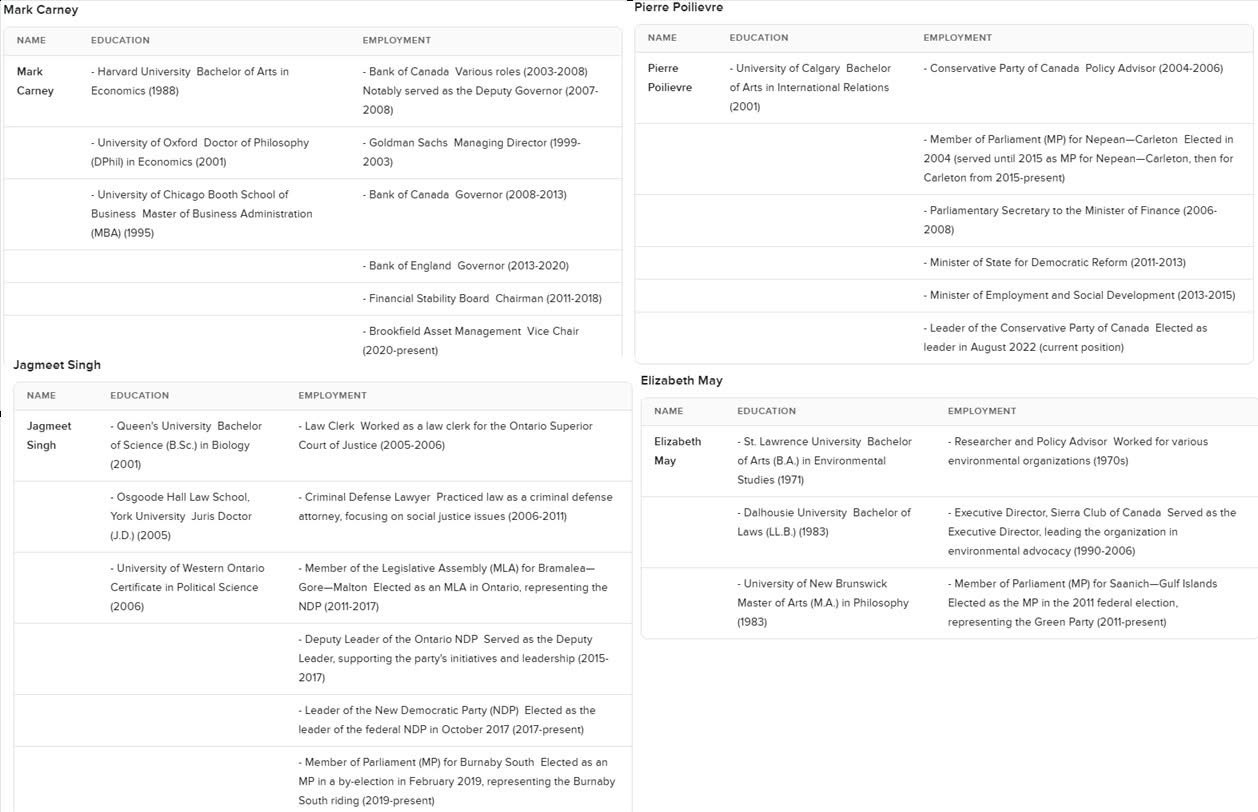

Liberal Party The Liberal Party has historically supported electoral reform, particularly during the 2015 election when they promised to replace the first-past-the-post system. However, after forming the government, they decided not to pursue a change to the electoral system, citing a lack of consensus among Canadians. They have since focused on other democratic reforms but have not committed to implementing proportional representation. Conservative Party The Conservative Party generally opposes proportional representation, favoring the current first-past-the-post electoral system. They argue that the existing system provides stable government and clear accountability. The party has expressed concerns that proportional representation could lead to fragmented parliaments and unstable coalitions. New Democratic Party (NDP) The NDP strongly supports electoral reform and advocates for a proportional representation system. They believe that such a system would better reflect the diversity of Canadian voters and ensure that every vote counts. The NDP has consistently included electoral reform in their platforms and calls for a national referendum on the issue. Green Party The Green Party is a strong proponent of proportional representation and has made it a central part of their platform. They argue that a proportional system would lead to a more representative and democratic government. The Green Party has consistently advocated for electoral reform and aims to implement a system that reflects the popular vote. Bloc Québécois The Bloc Québécois supports electoral reform and advocates for a proportional representation system. They argue that such a system would better represent the interests of Quebec and ensure that all votes are counted fairly. The party has called for reforms to enhance democratic representation in Canada.



I don’t think it’s clear that he didn’t have a job before, the other candidates also seem to Only have listings of their formal careers in their adult life… but it’s worth digging. My first job as a teenager was roofing and I can say that summer was so hard it built a work ethic in me so all subsequent jobs were ‘easy’ by comparison… the jobs you have in your formative years really can shape you for a lifetime.